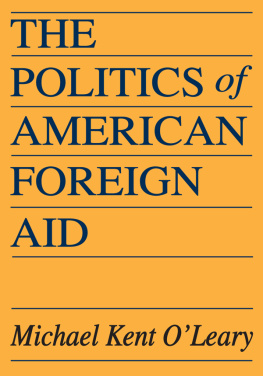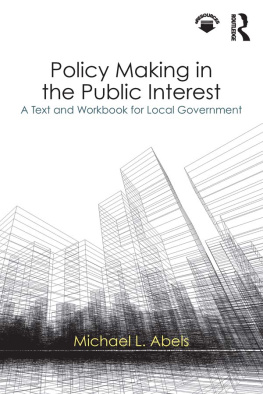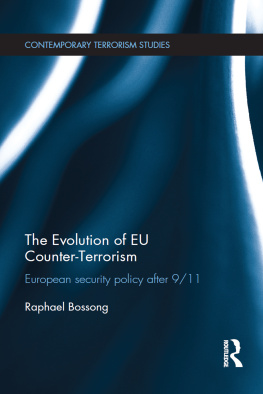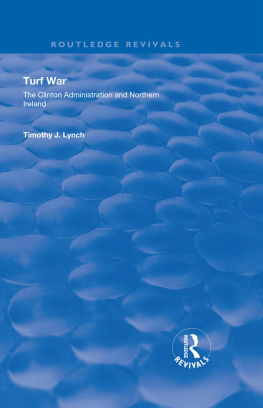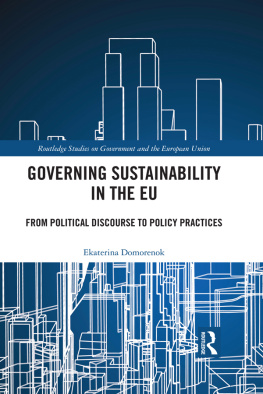THE EVOLUTION OF US PEACEKEEPING POLICY UNDER CLINTON
First published in 2000 in Great Britain by
Routledge
2 Park Square, Milton Park, Abingdon, Oxon, 0X14 4RN
270 Madison Ave, New York NY 10016
Transferred to Digital Printing 2006
Website: www.routledge.com
Copyright 2000 Michael G. MacKinnon
British Library Cataloguing in Publication Data
MacKinnon, Michael G.
The evolution of US peacekeeping policy under Clinton: a fairweather friend. (Cass series on peacekeeping; no. 6)
1. United Nations 2. United States Politics and government 1993 3. United States Foreign relations
I. Title
327.73
ISBN 0-7146-4937-6 (cloth)
ISBN 0-7146-4497-8 (paper)
ISSN 1367 9880
Library of Congress Cataloging-in-Publication Data
MacKinnon, Michael G., 1969
The evolution of US peacekeeping policy under Clinton: a fairweather friend? / Michael G. MacKinnon.
p. cm. (Cass series on peacekeeping, ISSN 1367-9880 ; 5)
Includes bibliographical references.
ISBN 0-7146-4937-6 (cloth). ISBN 0-7146-4497-8 (pbk.)
1. United NationsArmed Forces. 2. United StatesArmed ForcesForeign countries. 3. International police. 4. United States-
Politics and government1993 I. Title. II. Series.
JZ6377.U6M33 1999
327.73009049dc21 99-17425
CIP
All rights reserved. No part of this publication may be reproduced, stored in or introduced into a retrieval system, or transmitted, in any form or by any means, electronic, mechanical, photocopying, recording or otherwise without the prior written permission of the publisher of this book.
Typeset by Vitaset, Paddock Wood, Kent
Publishers Note
The publisher has gone to great lengths to ensure the quality of this reprint but points out that some imperfections in the original may be apparent
Contents
by Sir Brian Urquhart
Dedicated to the memory of
my Mother, Mary Alice E. MacKinnon
(1937-1987)
and her Mother
Loretta Mary McMackin
(1906-1994)
The United States is an original founder of the United Nations, the UNs host country, a permanent member of the Security Council and the organizations largest financial contributor. The UNs relationship to its most powerful member is a vital key to its success and effectiveness. In recent years that relationship has become increasingly problematic and negative.
Michael MacKinnon analyses the nature and main elements of the US/UN relationship through the study of a particularly important aspect of UN activity, peacekeeping. He uses the corkscrew-like evolution of Presidential Decision Directive 25 on US participation in UN peacekeeping as an intensely revealing test of the true nature and the twisted roots of the US attitude to the UN. His basic theme is the interaction and relative weight in the evolution of PDD 25 of four main groups the executive, the bureaucracies, the Congress and public opinion.
MacKinnon opens with a masterly account of the confusing and contradictory signals that emanated from the Bush and, especially, from the Clinton administrations. He concludes that at the present time a resurgent Congress dominates what might charitably be called a highly flexible administration in setting policy towards international organizations. MacKinnon performs an invaluable service in cutting through the veils and mists of rhetoric, spin, public relations and doubletalk that increasingly confuse and misrepresent the relationship of national governments and international organizations, especially in Washington. For those who believe that the effectiveness and strengthening of these organizations are important to the future, his findings are not encouraging.
In 1991 the end of the Cold War and the apparent success of Operation Desert Storm against Iraq gave rise to a shortlived revival of US enthusiasm for the UN. President Bush spoke of a New World Order and President Clinton of assertive multilateralism. The latters campaign speeches proclaimed strong support for the world organization and even advocated a UN Rapid Deployment Force.
Once in office, however, the Clinton administration steadily backed away from such undertakings. In September 1993 the UN General Assembly, accustomed to recent US enthusiasm for setting up new UN peacekeeping operations, was stunned to hear Clinton lecturing the assembled foreign ministers on the need for the UN to learn to say no. The debacle of the US Rangers in Mogadishu a few weeks later created in Washington a vast backlash against peacekeeping.
In the background, the drafting of PDD 25 crawled along in Washington. Portrayed at the outset as the promulgation of a new and positive American policy on peacekeeping, the final document signalled a complete reversal of Clintons earlier declarations and returned US policy to the Republican, Weinberger-Powell doctrine of extreme caution and non-support for international peacekeeping operations. Its questions and criteria governing the setting up of future operations are in themselves a formula for non-action in any likely future crisis. Like so much else in the Clinton administration, PDD 25 was, as MacKinnon puts it, largely the result of a self-perpetuating cycle of confrontation and conciliation played out between the White House and the Congress.
This turn-around had immediate and tragic practical consequences, of which the most serious was the complete failure of the US-led Security Council to act in time to counteract genocide in Rwanda. In the longer term PDD 25, and the state of mind it represents, constitute a major obstacle both to effective and timely future international action and to any chance of improving and strengthening the UNs operational capacity. Coming from the UNs most powerful member, such a document can only have a disastrous practical and psychological effect on the development of the international system. We may have bitter cause to remember this when the next great human emergency finds no adequate response from the so-called international community.
This book is a striking study of the over-caution, inhibiting interactions and political negativism that are stunting let us hope only temporarily the effort to build a serious international system. It carries a vitally important message both for the United States and the members of the UN as a whole.
Brian Urquhart
Massachusetts, August 1998
As the United Nations approaches the twenty-first century, it finds itself under great demand and stress. Although the number of peacekeepers in the field has dropped substantially since the early 1990s, other programmes and activities continue to press the Organizations limited resources. From the other side, and at the same time, the UN is being squeezed by member states which have a hard time remembering to pay their dues on time and in full. While there are many guilty members, the United States stands out from the rest in terms of the amounts owed and its tendency to make unilateral reform requests upon the Secretariat. To be sure, the UN is a fair target for some reform initiatives but quite often the US position constrains the UN more than its own inherent deficiencies. With the twenty-first century upon us, the UN and US must come to some sort of understanding as to what the relationship should be, and how to get there. Unless the UN is able to better manage its association with its most powerful member, the new era in international relations might be marked with more missed opportunities in the worlds hot spots and for the international communitys drive to establish the rule of law. The potential consequences are indeed great.


